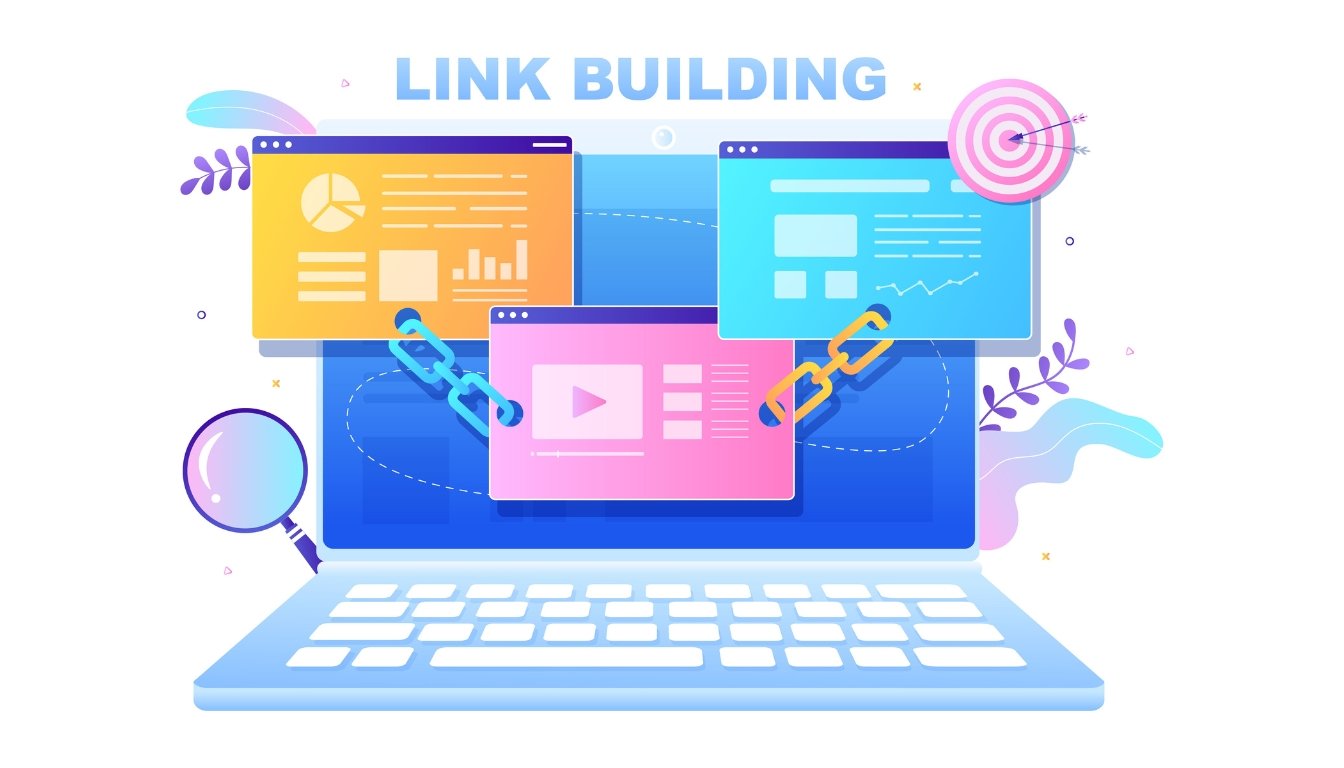Affiliate Disclaimer: Some of the links on this site are 'affiliate links.' This means if you click on the link and purchase the item, we may receive an affiliate commission.
Backlink strategies are critical for anyone starting in affiliate marketing. They help boost your website’s visibility, improve search engine rankings, and bring in consistent organic traffic over time. Whether you’re brand new to affiliate marketing or looking for simple, effective ways to grow, mastering backlinks can make all the difference.
Key Takeaways
- Start with quality over quantity. A few strong backlinks from reputable sites do more for your site than dozens of poorly chosen ones. Focus on building genuine connections.
- Choose your sources wisely. Reaching out to sites in your niche boosts your credibility and relevance. It’s like being part of an exclusive club—quality counts.
- Don’t ignore the power of guest blogging. Writing helpful articles for well-targeted sites not only gives you a backlink but also positions you as an authority. It’s a win-win.
- Broken link building is worth your time. By offering a resource to replace bad links on other sites, you build goodwill and snag a link back to your own page.
- Use internal links smartly within your website. They help visitors explore your content easily, which keeps them engaged longer and sends good signals to search engines. For a closer look at driving traffic effectively, check out Drive Affiliate Traffic: Boost Your Website Success.
- Remember, backlinks aren’t just about boosting SEO. They also lead real people to your site, so always aim to provide helpful, trustworthy content.
For more tips on strategies to boost your affiliate site, take a glance at The Ultimate Guide to Affiliate Traffic Sources for Beginners in 2025.
Here’s a quick video that breaks down one of the easiest ways to build backlinks fast:
The Importance of Backlink Strategies for Affiliate Marketers
So, what’s the fuss about backlinks? Think of them as your website’s endorsements. When another reputable site links to your content, it tells search engines like Google, “Hey, this site is trustworthy!” For affiliate marketers, these links can greatly improve your domain authority (more on that later) and drive solid, target-specific traffic to your site.
Understanding the Role of Backlinks in SEO
Search engines treat backlinks as votes of confidence. If high-quality, authoritative websites link to your content, it’s a signal that your site is valuable. This improves your rankings on search engines, which leads to more visibility, clicks, and conversions for affiliate marketers. This article from Backlinko explains how backlinks work in SEO.
How Backlinks Enhance Domain Authority
Domain authority is like your site’s reputation score, ranging from 1 to 100. The higher your domain authority, the more likely search engines are to rank your pages higher. Quality backlinks from respected sites can significantly improve this score. Think of it as building credibility. Sites like BBC or Forbes linking to you would boost your reputation far more than a random personal blog.
For more insights, check out this beginner-friendly breakdown on high-quality backlinks.
Proven Backlink Strategies for Beginners
Now that you get the “why,” let’s jump into the “how.” Here are some simple strategies you can follow to start building backlinks effectively.
Guest Posting to Build Authoritative Backlinks
Guest posting is a classic strategy, and for good reason—it works. The concept is simple: you write valuable content for another website in your niche, and in return, you get to include a backlink to your site. When approaching guest posting, focus your pitches on how your article can help their audience.
You’ll find a detailed guide on how to get started with guest posting here.
The Skyscraper Technique: Creating Link-Worthy Content

The Skyscraper Technique is all about creating the tallest “building” in your niche. Start by finding popular content that’s already getting links, then make something even better. For example, if a post lists “10 tips to drive traffic,” you can create a post with “20 actionable tips” plus fresh ideas. Once you’ve got your improved content, reach out to the sites linking to the original, asking them to link to your superior version.
Leveraging Resource Pages for High-Quality Backlinks
Resource pages are goldmines for backlink opportunities. These are pages where websites list helpful tools and articles for their audience. For example, if you’re in the fitness niche, a “Top Tools for Home Workouts” page could be perfect for promoting your content. You can search for resource pages using keywords like “your topic + resources” and politely email the site owner to suggest your article for inclusion.
Internal Linking Tip: Boost Your Efforts with Kadams Publishing
If you’re already working on improving backlink strategies, don’t skip on internal linking. The team at Kadams Publishing has put together great resources, like this guide for driving affiliate website traffic, to help you combine backlink strategies with other effective traffic sources.
Avoiding Common Backlink Mistakes
While building backlinks is essential, it’s equally important to avoid missteps that could harm your SEO efforts. Here’s what you need to watch out for:
Steering Clear of Black Hat Techniques
Shortcuts like buying backlinks or spamming comment sections might seem like an easy win, but they’re a surefire way to get penalized by search engines. Always stick to ethical, white-hat methods to build links that last and actually improve your rankings. Learn about avoiding black hat practices and building sustainable backlinks here.
Avoiding Over-Optimization of Anchor Text
Anchor text—the clickable text in a hyperlink—needs variety. Repeating the same keyword in your anchor text over and over looks spammy to search engines and can hurt your rankings. Keep it natural by using different variations, like your brand name, short phrases, or even descriptive terms.
Frequently Asked Questions About Backlink Strategies
What are backlinks, and why are they important?
Backlinks are links from one website to another. They matter because search engines view them as votes of confidence. When reputable sites link to yours, it boosts your credibility and rankings in search results.
How do I determine if a backlink is high-quality?
A quality backlink comes from a reputable, relevant website with strong domain authority. Ideally, it should be a do-follow link placed within meaningful content, not in the footer or sidebar.
What’s the difference between do-follow and no-follow backlinks?
Do-follow backlinks pass SEO value, helping improve your site’s authority. No-follow links, on the other hand, signal to search engines not to pass SEO value. Both types serve different purposes and are part of a natural backlink profile.
How many backlinks does my website need?
There’s no magic number. Focus on quality over quantity. Fewer high-authority links tend to have a bigger impact than many low-quality ones. Keep your backlink strategy aligned with your site’s goals.
Can backlinks hurt my website?
Yes, harmful backlinks—spammy or irrelevant links—can negatively affect your ranking. Regularly audit your backlink profile and disavow links from questionable sources when necessary.
What’s the best way to build backlinks?
The best strategies include creating shareable content, guest blogging on relevant, high-quality sites, and leveraging professional connections. For more ideas, check out affiliate traffic sources.
Are directory submissions still effective for backlinks?
Some are, provided they’re niche-relevant, high-quality directories. Avoid spammy, general directories that can harm your ranking.
Should I buy backlinks?
Buying backlinks violates Google’s guidelines and risks penalties. Focus on earning links organically through genuine relationships and valuable content creation.
How do I check my site’s backlinks?
Use tools like Ahrefs, SEMrush, or Google Search Console to analyze your backlink profile. These tools also help identify opportunities for improvement.
Do social media links count as backlinks?
Technically, yes, but they’re usually no-follow. They still offer value by driving traffic to your site and increasing visibility.
How can I recover lost backlinks?
If a backlink is removed, reach out to the site owner to inquire why. It could be accidental. If all else fails, focus on building new, stronger links.
For more ideas on driving traffic, explore our guide on boosting affiliate website success.
Final Thoughts
Backlink strategies are essential for affiliate marketers who want to build a thriving online presence. By prioritizing quality over quantity, sticking to ethical methods, and avoiding common mistakes, you’ll set the stage for long-term success.
Start small with techniques like guest posting and the Skyscraper Method, and remember to integrate internal resources, like this guide on affiliate traffic sources, to maximize your efforts. While it takes time, the rewards—higher rankings, more traffic, and better conversions—are definitely worth it.

